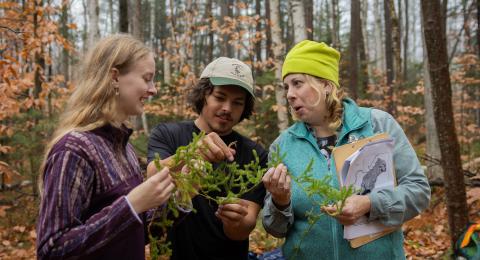Broaden your horizons with firsthand experience in environmental science and policy as it shapes our natural world. Combine crucial data-driven concepts with industry-specific skills and you’ll have a resume that speaks for itself.. This is how futures change. Let’s change yours today.
Sustainability Studies
Securing Your Future
This degree is inspirational, applicable, and versatile. If you are determined to foster a better, more just and verdant world for all, our caring professors will support your endeavors. At KSC, you can explore your ideas and develop an impactful toolkit that empowers you to make bold choices and become an agent of change.
Major
Sustainability begins where the natural environment, society, economic factors, and political concerns intersect. It rises from a passion for healthy food, water, living, and consumption, from managing natural resources to investing in a circular economy. In the middle, is every one of us with our own values and perceptions.
Where the edges meet is where new ideas become solutions. With this program, you’ll be the one to help make it happen.
Minor
Want to walk away from your time at college as a global, dynamic thinker? At Keene State, you’ll get to examine sustainability through the lens of food systems, energy, natural resources, and biodiversity. Get hands-on in a part of New England where these conversations are at the forefront.
You’ll find a whole new understanding of societal, economic, and environmental elements with a minor in environmental studies or geoscience.
Minor
Complement your sustainability major with a rock-solid foundation in geoscience and gain a compelling geographic perspective. This will enable you to represent pivotal concepts in earth science, meteorology, environmental studies and geography from a regional, systematic or geographic approach. Yes, it’s that impressive.
Undergraduate

Find Your Potential
In this program, you can take advantage of the incredible expertise and insights of our community of inclusive educators. We go beyond the classroom to find the opportunities that set our students up for success. We empower you to become extraordinary.
Career Opportunities
What do you get when you instill students with real-world experiences and a wide range of professional, in-demand skills? People who can rise to meet any challenge set before them. People who can envision a strong, sustainable future for themselves, the community, and the world. People who know how to get the job done now.
Leaders. Policy makers. Entrepreneurs. Innovators. Creators. After Keene State, who will you be?
Request Information
Contact Admissions
Admissions Office
603-358-2276
229 Main Street
Keene, New Hampshire 03435

